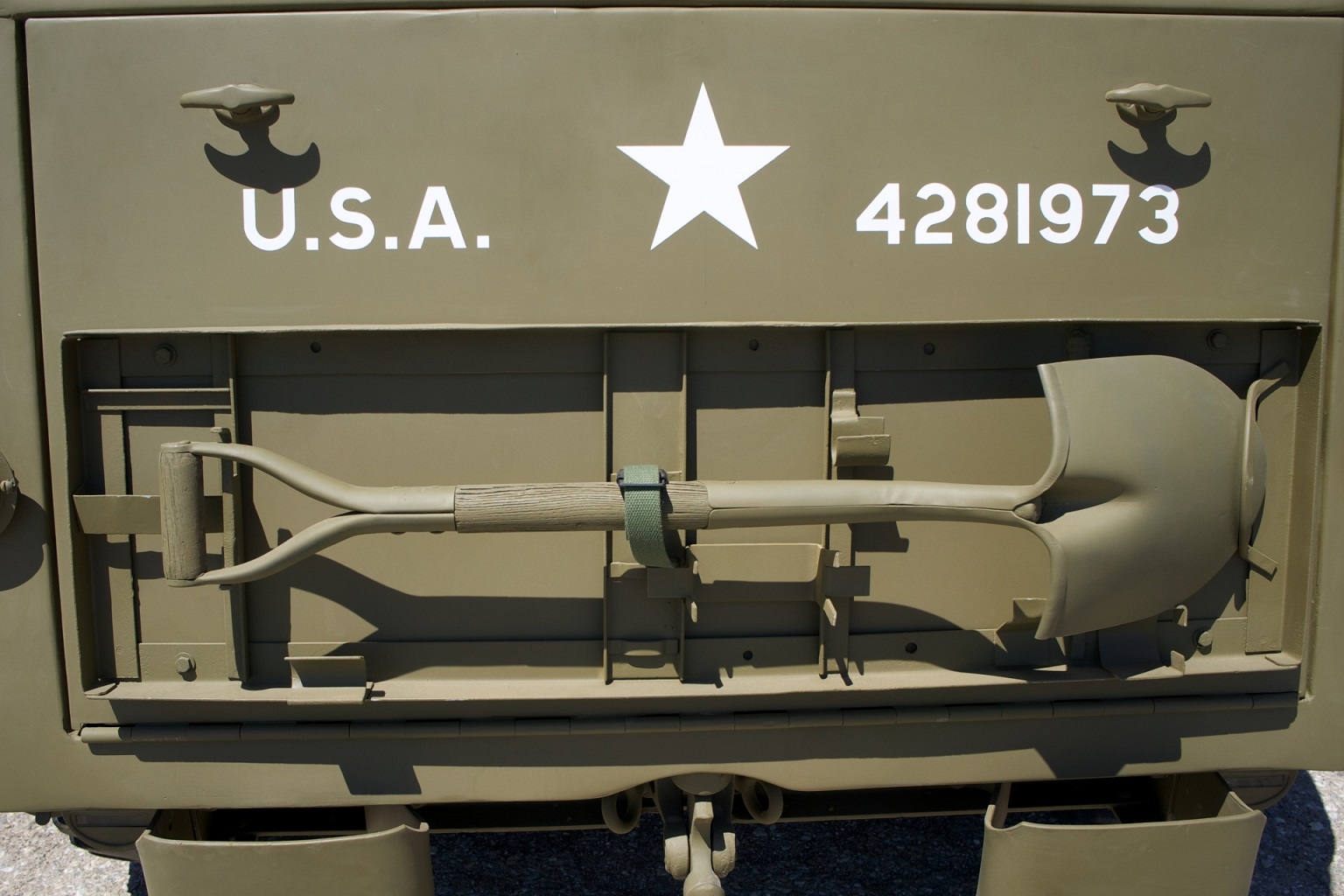Shovels: Lawful Weapons or War Crime?
On first impression, beating the Islamic State fighters to death with shovels sounds like a clear-cut case of stooping to the enemy’s level of barbarity. And yet that is exactly what the senior enlisted adviser to the Chairman of the Joint Chiefs of Staff suggested in a rallying cry to U.S. forces on Jan. 9:

Published by The Lawfare Institute
in Cooperation With

On first impression, beating the Islamic State fighters to death with shovels sounds like a clear-cut case of stooping to the enemy’s level of barbarity. And yet that is exactly what the senior enlisted adviser to the Chairman of the Joint Chiefs of Staff suggested in a rallying cry to U.S. forces on Jan. 9:
[The Islamic State] needs to understand that the Joint Force is on orders to annihilate them ... if they choose not to surrender, then we will kill them with extreme prejudice, whether that be through security force assistance, by dropping bombs on them, shooting them in the face, or beating them to death with our entrenching tools.
In the midst of claims of relaxed rules of engagement and greater civilian casualties in the latter stages of the anti-Islamic State campaign, beating the enemy to death with shovels surely sounds like a race to the bottom. ABC News reported that the idea has “raised eyebrows” and one service member posted a horrified statement of alarm on Facebook condemning the use of:
... this sort of crude and barbaric language with regards to anyone, not even our crudest and most barbaric enemies. ‘Shooting them in the face?’ ‘Beating them to death with our entrenching tools?’ HOW MANY TIMES have we all taken our services’ respective courses on the law of armed conflict? Courses which emphasize that America takes the high road? This is absolutely unbecoming of an NCO [non-commissioned officer] — ANY NCO — and least of all our nation’s highest.
Indeed, beating someone to death sounds like an act we should and must condemn as a barbaric crime—but is it?
In fact, though gruesome, the use of a shovel to kill an enemy in combat is entirely within the bounds of the law. The law of armed conflict—or international humanitarian law, as it is also known—governs the conduct of hostilities during wartime and is therefore the applicable legal regime for any hostilities between the U.S. and the Islamic State or U.S. treatment of Islamic State fighters in combat or after capture.
The notion of beating Islamic State fighters to death with shovels in combat implicates three fundamental law of war rules, but does not pose any significant legal challenges or complexities. First, the law of war provides guidance on the lawfulness of weapons, prohibiting indiscriminate weapons and weapons calculated to cause unnecessary suffering or superfluous injury. An indiscriminate weapon is one that cannot be directed at a lawful military target or whose effects cannot be limited to a lawful military target. A shovel certainly does not fit that description—the person wielding the shovel can only hit one person with the shovel and, barring extraordinarily bizarre circumstances, beating someone with a shovel will not have uncontrolled effects on persons or property nearby.
The law also prohibits weapons calculated to cause unnecessary suffering so as to minimize harm that is not justified by military utility, either because of a lack of any utility at all or because the utility gained is considerably outweighed by the suffering caused. Expanding bullets, blinding lasers, and weapons with glass fragments (glass shrapnel cannot be located and the wounded cannot be treated) are all examples of weapons that cause unnecessary suffering. Shovels simply do not belong in this category—banning the use of shovels to beat an enemy over the head in hand-to-hand combat would lead to the absurd result of banning a soldier from using his rifle in the same manner after he ran out of ammunition and it was the only option for defending himself.
Second, the law of war principle of distinction mandates that parties to a conflict distinguish between those who are fighting and those who are not and direct attacks only at those who are fighting. Distinction protects civilians—a core purpose of the law of war—by prohibiting deliberate attacks on civilians and requiring that fighters distinguish themselves from civilians to help protect civilians from the hazards of combat operations. If the U.S. or any other armed force were to use shovels to attack civilians, that would be a war crime, just like any other deliberate attack on civilians with artillery, airstrikes or any other weapon. But the statement here is about attacks on enemy fighters and has nothing to do with civilians whatsoever. Nothing in the law of war prevents one party to a conflict from declaring that they will kill enemy military personnel in the course of the conflict—indeed, although violent and distasteful, killing the enemy is a fundamental incident of war.
Finally, if one were to read the combative and brutal-sounding headline alone, one might imagine that the U.S. military is threatening to beat Islamic State soldiers with shovels after capturing them, as a form of revenge or show of brutal force. Like deliberate attacks on civilians, that would be a war crime. However, the senior enlisted adviser’s pronouncement specifically and correctly states that if Islamic State fighters “surrender, we will safeguard them to their detainee facility cell, provide them chow, a cot and due process.” Detention in armed conflict is designed to prevent enemy fighters from returning to the battlefield and is protective custody, not punitive in nature. However, unless enemy fighters manifest a genuine intent to surrender, the law does not include any obligation to capture rather than kill in the course of combat operations. Threatening to kill or harm fighters if they surrender is unlawful; declaring that you will protect them if they surrender but kill them if they do not surrender but continue to fight is simply a statement of the fundamental obligations and authorities set forth in the law of armed conflict.
On a broader level, the exhortation to U.S. troops does raise valid concerns about the danger of dehumanizing or demonizing language in wartime. The means and methods by which the command sergeant major suggested killing the enemy, however, is not among those concerns. In today’s world of drones, precision-guided munitions, and cyber and autonomous weapons, we can easily forget that war is just as often fought with AK-47s, improvised explosive devices, machetes and even bare hands. For Americans accustomed to watching reports of wars fought thousands of miles away with drone strikes and smart bombs, the image of U.S. soldiers beating enemy fighters with shovels serves as a potentially shocking reminder of the brutality of war—but is not on its own a sign of moral depravity or a descent into war crimes. In fact, the juxtaposition of this regulated violence, however brutal, with the imperative of safeguarding any detainees, captures precisely the delicate balance of military necessity and humanitarian considerations that lies at the very heart of the law of war. No less important, it emphasizes that no matter how low-tech or high-tech one’s military capabilities are, adherence to the law is what matters.





